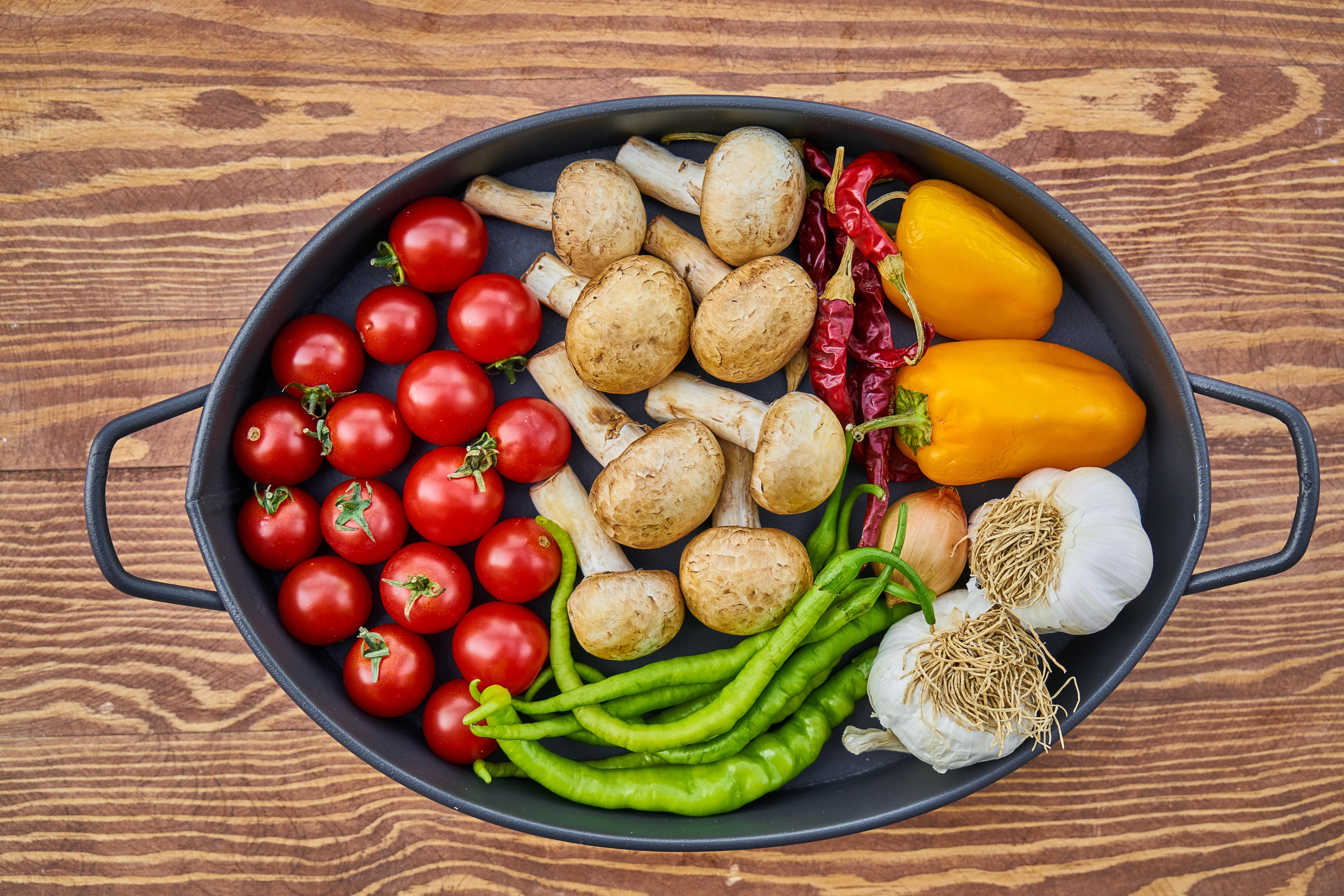Table of Contents
Can You Freeze Fresh Mushrooms, Is That Right?
Wondering, Can you freeze fresh mushrooms? To raise the texture and flavor of all the dishes you are willing to prepare, mushrooms must ideally be used when they are fresh. Occasionally, it’s not feasible to use all of the mushrooms you purchased before they go rotten.
To store your mushrooms longer, you can freeze them. However, it’s essential to comprehend how freezing may influence their quality. This writing reviews everything about- Can you freeze fresh mushrooms and the most suitable ways to freeze them to maintain their flavor and texture as much as feasible.
To begin with- let’s understand what effect freezing has on mushrooms.
Can You Freeze Fresh Mushrooms?
Most new mushrooms last for approximately one week in the refrigerator before they begin showing indications of nearing end dates, such as evolving brown, soft, or even slimy. While you may freeze mushrooms, bear in mind that this can adversely affect their type and quality.
Over time, frozen mushrooms and other products tend to lose some of their nutritional value. Mushrooms are a valuable source of essential nutrients such as B vitamins, Vitamin D, copper, and potassium.
While freezing does not affect meals’ calorie, mineral, or fiber content, it can lower the number of water-soluble vitamins such as riboflavin, folate, and niacin. Bear in mind that fresh mushrooms also lose nutrients with time.
Texture can correspondingly be affected. While you can store fresh mushrooms inside the fridge, they can grow mushy when melted, given their high water content. This can function for soups, casseroles, or combined dishes, but you might not want squishy mushrooms for different things.
Fortunately, a few pre-freezing practice methods can assist mushrooms in maintaining their freshness, consistency, and nutrients. Take a look at a quick guide on how to freeze mushrooms.
How to freeze mushrooms

The mushrooms are fresher when you keep them inside the refrigerator or freeze them; the better they remain in the freezer. Fresh mushrooms include a firm texture and a delightful earthy smell. Plus, they are free of dark or mushy spots.
Sometimes the most promising place to buy fresh mushrooms is at the local farmer’s market near your home, but you might also find locally farmed mushrooms at the grocery store.
Before deciding to freeze mushrooms, wipe off any visible dirt. Many people are likely to wash mushrooms before freezing them, but this tends to cause them to be mushier when cooked.
If you decide to freeze the mushrooms when they are fresh or raw, trim the stems and put them within a freezer-safe plastic bag. Press out as much air as you can before closing the bag and putting it in the freezer.
If you do not want to keep raw mushrooms within the freezer, below are two suggested methods for cooking them prior to freezing.
Steam blanching
Steam blanching is a fast-cooking method that helps keep produce before it is frozen. It functions by destroying enzymes that may increase how fast foods spoil.
A counted benefit of steam blanching is that it helps to inactivate Listeria and Salmonella, two typical foodborne bacteria, enhancing the safety of the mushrooms before freezing them.
Similarly, blanching mushrooms and similar products might help maintain nutrient content. Blanching times differ based on the size of your mushroom, so it is a good idea to either pick them by measure or cut them into equal-sized chunks before taking them out for steaming.
To prevent color change during the blanching method, first, absorb your fresh mushrooms in a blend containing two cups (or 480 mL) of water and one teaspoon (or 5 ml) of lemon juice for nearly 5 to 10 minutes.
Alternatively, you may steam the mushrooms utilizing a mixture of 4 cups (or 960 mL) of water as well as one teaspoon (or 5 ml) of lemon juice. To steam blanch the mushrooms, get a pot of water to a boil and then set a steamer basket within it. Mix the mushrooms into the basket and allow them to steam for 3–5 minutes.
Then, extract the mushrooms and position them directly into a bath of ice water for the exact amount of time you cooked them. Drain the water, put the mushrooms in freezer-safe, airtight bags, and keep them in the freezer.
Sautéing
Sautéing is a dry heat cooking process that utilizes a tiny amount of fat and a reasonably high temperature to brown and softens food quickly. Cooking this particular method without water might stop the loss of B vitamins. In addition, cooking using fat might enhance the absorption of antioxidants and additional plant compounds.
In a big skillet, put fresh mushrooms and a small amount of butter or hot oil, and obtain medium-high heat. Cook them for about 5 minutes, till almost entirely boiled. The mushrooms should become delicate but not very squishy.
Remove the mushrooms from the skillet and place them on any great paper towel or plate for cooling. Once completely cooled, put them in a freezer-safe, airtight bag and store them within the freezer.
Frozen mushrooms prepared to utilize these techniques can be used in multiple ways. They work nicely if added to meals that will be cooked instead of eaten cold.
How to thaw frozen mushrooms

Most frozen mushrooms will survive in the freezer for 9–12 months. Frozen mushrooms are highly suitable for meals that will be cooked, such as stews, soups, casseroles, or as a pizza topping.
Furthermore, you can open mushrooms for meals that require cooking but not inside the oven, such as rice, pasta, or quinoa, by mixing them with the grain while it cooks and boils.
If you are not making a dish that will boil for long enough to thoroughly heat and cook those frozen mushrooms, you can soften them first by moving them to the refrigerator overnight to thaw.
Nutritional benefits of eating mushrooms
You cannot go wrong with mushrooms. Mushrooms are fat-free, low in sodium content, low in calories, and cholesterol-free. They’re also filled with fiber, different vitamins, and minerals. Nutritional advantages differ based on the kind of mushroom. But generally, they are a great source of the given nutrients.
Antioxidants
Antioxidants assist protect your body from harming free radicals that can lead to conditions such as heart disease and cancer. They also shield you against injury and damage from aging and strengthen the immune system. Mushrooms are enriched in antioxidants known as selenium. They are the most suitable source of the mineral in the vegetable gallery.
Beta-glucan
Beta-glucan is a state of soluble dietary fiber that has been deeply linked to enhancing cholesterol and promoting heart health. It can Furthermore, it cannot control blood sugar, lessening the risk of type 2 diabetes. Shiitake and Oyster mushrooms are considered to have numerous useful beta-glucans.
B vitamins
Mushrooms are affluent in the B vitamins such as niacin, riboflavin, and pantothenic acid. The mixture helps shield heart health. Riboflavin is suitable for red blood cells. Niacin is helpful for the digestive system and for supporting healthy skin. Pantothenic acid is helpful for the nervous system and allows the body to make the hormones it requires.
Copper
Copper allows your body to produce red blood cells, which are utilized to produce oxygen all over the body. The mineral is furthermore necessary for other procedures in the body, like preserving healthy bones and nerves. Even after cooking, a one-cup serving of mushrooms will deliver approximately one-third of the everyday suggested amount of copper.
Potassium
Potassium is excessively influential when it comes to muscle, heart, and nerve function. There is about as much potassium in nearly 2/3 cup of boiled Portobello mushroom as in a moderate-sized banana.
Can You Freeze Fresh Mushrooms? The bottom line
Mushrooms can be kept in the freezers to extend their shelf life and lessen food waste, mainly if you’ve bought more mushrooms than you can cook at one time.
While freezing mushrooms might lead to some nutrient losses and consistency changes, these are small and still permit the mushrooms to be used in multiple ways when you are ready with more options. This makes freezing mushrooms a great option, as long as they are correctly prepped.
Mushrooms can either be cooked in so many ways. They can be steam blanched, frozen, trimmed and raw, or quickly sautéed and cooled before placing in an airtight, freezer-safe container.
That was all about- Can you freeze fresh mushrooms.


